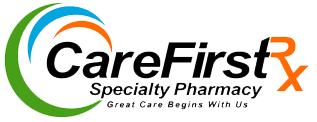What is Compounding Medicine?
A compounding pharmacy creates many forms of prescription medications, with different delivery systems. That’s important because it makes medications available in forms that may be easier for some people to take.
For example, the prescribing physician may be able to order medications in the form of suppositories, emulsions, and eye, ear, and nose drops instead of pills or caplets. That gives the patient more options.
Before the mass production of pharmaceuticals gained momentum and changed the industry, most medications were created for patients in a more individualized manner. While mass production brought convenience to the supply side of things, it took away some of the benefit that came with tailoring prescription medications to the individual patient’s needs. In the accompanying infographic, we’ve laid out a timeline that touches on the history of compounding medicine, along with statistics and data related to prescriptions across the United States. Not only that, but we’ve also provided a number of benefits associated with compounding medicine that you’ll want to keep in mind next time you need a more tailored prescription.
Additional pharmacy services that can be performed at a compound pharmacy are drug administrations in the form of:
- Injections: Intravenous, intramuscular, or subcutaneous
- Aerosols: Oral or nasal solutions
- Time released oral medications: Controlled or delayed-release tablets or capsules
Pharmacy Technicians
Specially trained technicians work side-by-side with the pharmacist in performing pharmacy services. Our technicians help maintain the equipment and handle administrative duties, and must be also familiar with methods of compounding medicine and packaging. They are an important part of our compounding pharmacy.
Accreditation
A traditional or big chain pharmacy usually does not have the equipment for compounding medicines, so the prescription must be ordered at a compounding facility. Many are PCAB accreditation, which means the operation has passed the Pharmacy Compounding Accreditation Board's requirements and standards of services. The PCAB is an independent third party that focuses on patient health, pharmaceutical procedures, and staff education and performance.
The U.S. Food and Drug Administration (FDA) still monitors pharmaceutical companies and how they process their medications. Along with the FDA, the U.S. Drug Enforcement Administration (DEA) tracks all prescription narcotics and controlled drugs. The state boards regulate the pharmacists, technicians, and the overall practices of the pharmacy.
One of the biggest advantages of getting your prescriptions prepared by a compounding pharmacy such as ours is the personal touch -- your medications, in a form that works for you. We’re here to answer any questions you have about compounding medicine for human or veterinary use.


Comments